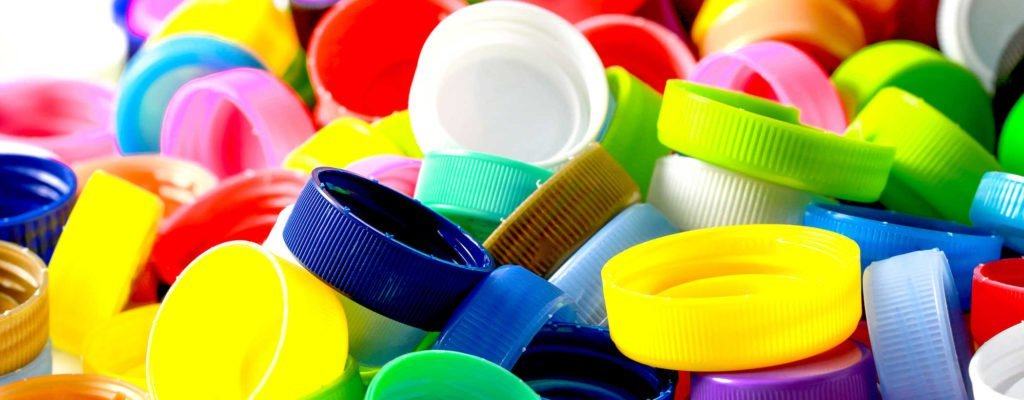Ways to determine an infants caloric needs

Learn how to determine your baby’s caloric needs, including the calories in breast milk and formula, to ensure your infant gets the right nutrition for healthy growth.

Synthetic plastics are everywhere. Plastic is found in children's toys, food containers, cosmetic bottles and household items. Some plastics are environmentally friendly and safe for children, while others contain many toxic substances and can pollute the environment during production.
It is almost impossible to avoid contact with synthetic resins, but you absolutely can choose one that is safe for home health and the environment. Therefore, you need to find out the information and codes on plastic to know which ones are safe.
Plastic is a synthetic (synthetic) substance and is used to make many products such as bottles, toys, and household goods. Plastic is lightweight and strong, and can be molded into a variety of designs and thicknesses.
Plastic is made of chemicals. The two main types of plastic chemicals that can affect pregnant women and babies are:
Bisphenol A (also known as BPA): BPA makes a plastic clearer and stronger. They are sometimes used as baby bottles, water bottles or metal cans;
Phthalates make plastics soft and supple. Medical items (such as tubes), shampoo bottles, food items, and makeup can contain this substance.
Exposure to these chemicals during pregnancy can cause fetal brain and behavioral health problems. If the baby is a boy, plastic can adversely affect the prostate gland. The prostate gland is a small gland near the bladder and the male "boy" helps protect sperm.
It is better to check the ingredients of any plastic item before buying them to use.
The following plastics are SAFE plastics that you and your family can safely use:
Number 1 is PET (Polyethylene Terephthalate)
Number 2 is HDPE (High-Density Polyethylene)
Number 4 is LDPE (Low-Density Polyethylene)
Number 5 is PP (Polypropylene).
You SHOULD NOT use synthetic resins numbered 3 (PVC - Polyvinyl Chloride), No.6 (PS Polystyrene), 7 (BPA resin, Polycarbonate and LEXAN) or PC (abbreviation for hazardous chemicals). called polycarbonate).
You should not reuse single-use plastics such as plastic bags, plastic water bottles, coffee cups, and straws. If reused, you can break the plastic's structure and release some of the chemicals. If you routinely carry water to school / work, you can replace it with a hard plastic or metal bottle instead. When you go to the market, after using the plastic bag, you should throw it away, not save it for reuse.
When breastfeeding, mothers should breastfeed their babies directly. If you have to give your baby formula or have to express breastmilk, you should change the plastic bottle to a glass bottle or choose the safe plastic described above.
When you let your child play with toys, choose one made of fabric or wood, not one with paint. If you choose to buy plastic toys for your baby, then carefully check whether it is safe plastic before buying. You should also not let your child play or suck on plastic electronic devices such as television remote or cell phones because they may be contaminated with chemicals.
When heating food in the microwave, you should not store food in plastic containers, for example in porcelain dishes.
For moms who use cosmetics, choose products that do not contain phthalate.
You should also wash your hands before eating and practice this good habit for your family.
Generally, plastic products numbered 2, 4 and 5 are safe plastics. However, whichever plastic you choose, remember not to expose them to high temperatures like a microwave oven. It is better to limit the use of synthetic resin as little as possible.
Learn how to determine your baby’s caloric needs, including the calories in breast milk and formula, to ensure your infant gets the right nutrition for healthy growth.
Discover the top 5 smartest dog breeds in the world, including Border Collie, Poodle, German Shepherd, Golden Retriever, and Doberman Pinscher. Learn about their unique traits and why they are considered the most intelligent dogs.
Discover 7 nutritious and delicious ways to cook egg porridge for babies, including recipes with cheese, pumpkin, tomato, and more. Learn how to prepare baby-friendly egg porridge with our expert tips.
After a series of medical measures they obtained a complete human vascular system profile.
Watermelon is one of the fruits that many people love, not only cheap but also delicious, nutritious and refreshing in the summer. To get delicious watermelon pieces, show off your housewives, your artistic talents to cut beautiful pieces of watermelon.
aFamilyToday Health - The digestive system and body in each baby is different. Parents need to recognize notes to deal with when babies have a food allergy!
Babies need many factors for perfect development. aFamilyToday Health shares with parents things to keep in mind when babies are 8 weeks old so that parents can take care of their babies the best!
Babies need many factors for perfect development. aFamilyToday Health shares with parents things to keep in mind when babies are 18 weeks so that parents can take care of their babies the best!
Babies need many factors for perfect development. aFamilyToday Health shares with parents things to keep in mind when babies are 28 weeks old so that parents can take care of their babies the best!
Babies need many factors for perfect development. aFamilyToday Health shares with parents things to keep in mind when babies are 32 weeks old so that parents can take care of their babies the best!








